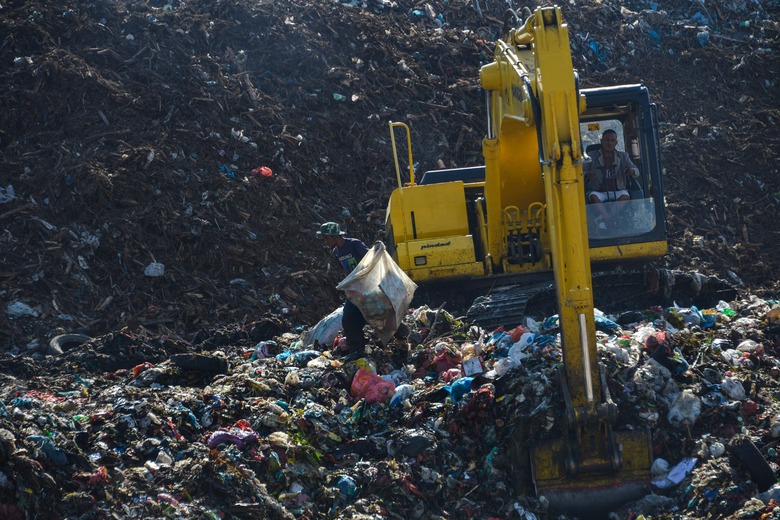Almost Every Country Signed An Agreement To Reduce Plastic Waste. Guess Which One Didn't?
In a stunning display of global unity, leaders from nearly every country in the world signed an agreement dedicated to reducing plastic waste.
Except for one, that is. And an arguably important one for this issue, since it's the country that take second place in producing the most plastic waste. Wanna take a depressing guess at which country disregarded the agreement?
Did you guess the United States?
Ding ding! You win! Or rather, you lose, considering that the longer world leaders go without pledging to curb plastic pollution, the more of our ecosystem we'll continue to lose.
What Was the Agreement, Anyway?
What Was the Agreement, Anyway?
The agreement came out of the Basel Convention, a United Nations-backed convention that regulates what kind of potentially toxic materials get transported across international borders. Worried about the effects that plastic has on the environment, governments from a whopping 187 countries signed the agreement to add plastic to that list of materials.
With that addition, more eyes will be on plastic as it is transported worldwide. Now, people in industries including technology, health care, agriculture and fashion may have to make changes in order to cut back on the rampant and largely unregulated overuse of plastics. Those specific changes will be up to the countries who signed the agreement.
The United States was one of the few countries not to participate in the talks or ratify the treaty. But that doesn't mean it will be totally unaffected. Since so many other countries have signed the agreement, U.S. trade with those other countries might be affected as they force their trade partners to be accommodating of their new regulations.
Plastic and the Planet
Plastic and the Planet
There's a reason that so many countries came together on this issue – it's one of the most pressing conservation problems that our planet faces. Back when plastic become popular around the 1950s, the synthetic material was beloved as a cheap, sterile and durable alternative to more expensive and breakable materials like glass, as well as a sterile place to help disposable products like milk and meat last longer.
Almost immediately, though, it became a plastic vs. the planet situation. Unfortunately, plastic is currently winning. About half of the 300 million tons of plastic products in the world, such as grocery bags and water bottles, have been used only once and then discarded. There's a patch of garbage twice the size of Texas floating in the Pacific Ocean, and tons (like, literally tons) of other garbage killing sea animals like dolphins and sea turtles every day. Additionally, the manufacture, use and waste mismanagement of so much plastic is now considered a threat to human health worldwide.
So what's the solution? Well, voting in an administration that prioritizes a clean environment would be a start. And little fixes in your own life can add up, too. Ditching plastic in favor of items like reusable glass or stainless steel water bottles and canvas tote bags all helps. But putting pressure on lawmakers and corporate leaders is your best bet at meaningful change. Never be afraid to speak up and make your voice bigger than those mountains of plastic taking up valuable space on our precious planet.
Cite This Article
MLA
Dragani, Rachelle. "Almost Every Country Signed An Agreement To Reduce Plastic Waste. Guess Which One Didn't?" sciencing.com, https://www.sciencing.com/almost-every-country-signed-an-agreement-to-reduce-plastic-waste-guess-which-one-didnt-13719133/. 17 May 2019.
APA
Dragani, Rachelle. (2019, May 17). Almost Every Country Signed An Agreement To Reduce Plastic Waste. Guess Which One Didn't?. sciencing.com. Retrieved from https://www.sciencing.com/almost-every-country-signed-an-agreement-to-reduce-plastic-waste-guess-which-one-didnt-13719133/
Chicago
Dragani, Rachelle. Almost Every Country Signed An Agreement To Reduce Plastic Waste. Guess Which One Didn't? last modified March 24, 2022. https://www.sciencing.com/almost-every-country-signed-an-agreement-to-reduce-plastic-waste-guess-which-one-didnt-13719133/
